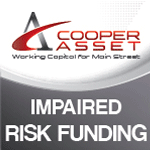Results 1 to 8 of 8
-
01-02-2020, 09:29 AM #1Member

 Reputation points: 51
Reputation points: 51
- Join Date
- Dec 2015
- Location
- NEW YORK, NY
- Posts
- 7
How will the new Robo-Call law affect ISO's using predictive dialers
https://www.congress.gov/bill/116th-...-bill/151/text
Anyone hear from an attorney that specializes in TCPA violation on how this will affect using a predicative dialer ?
I contacted the one we use and he is looking into it but has not responded yet. Once he does will post his repsonse.
-
01-03-2020, 01:25 PM #2
the guys in the Philippines and Bangladesh won't care, but you will be on the hook as an American company
-
01-03-2020, 02:58 PM #3Member



 Reputation points: 255
Reputation points: 255
- Join Date
- Dec 2018
- Location
- NY
- Posts
- 11
We've been looking into this. It looks like the definition of a robo call on the FTC website is a phone call with a recorded message when you answer and not a live person. So it seems we're safe if we're human beings making the calls...for now.
-
01-03-2020, 03:39 PM #4Member

 Reputation points: 51
Reputation points: 51
- Join Date
- Dec 2015
- Location
- NEW YORK, NY
- Posts
- 7
Thanks guys, my TCPA attorney said he needs a few days to work through it and speak to others that handle TCPA litigation. I think the same as Gian C. but I sometimes interpret the laws to work in my favor lol.. Soon as I hear will post the info.
-
01-06-2020, 02:22 PM #5Senior Member











 Reputation points: 32977
Reputation points: 32977
- Join Date
- Dec 2017
- Posts
- 238
-
01-07-2020, 11:56 AM #6Member

 Reputation points: 51
Reputation points: 51
- Join Date
- Dec 2015
- Location
- NEW YORK, NY
- Posts
- 7
Got this from a friend who runs a very large debt collection company:
Privileged & Confidential
You asked us to determine: (1) what the recently enacted Pallone-Thune Telephone Robocall Abuse Criminal Enforcement and Deterrence Act (the “TRACED Act”) covers; and (2) whether it will likely affect your current business model. In short, rather than increase exposure for civil litigation, the TRACED Act adds various tools to regulators’ toolbox to combat illegal robocalls and malicious caller ID spoofing. Notably, the TRACED Act does not make the use of a predictive dialer, by itself, illegal. And while ___________ also does not spoof its outbound phone numbers, given that ____________ was ________________________________ for its Do Not Call compliance efforts we do believe a larger discussion of _______________________ practices may be appropriate.
As discussed below, the TRACED Act expands the government’s ability to prevent and/or penalize illegal robocalls; it does not have a direct impact on private litigation. For instance, while the TRACED Act empowers the Federal Communications Commission (“FCC”) to, among other things: (a) levy penalties of up to $10,000/per call on anyone who intentionally flouts telemarketing restrictions; (b) removes a requirement that the FCC must provide a warning before imposing tough penalties; and (c) further extends the window for the FCC to take enforcement actions to up to four years, the law does not alter the standard for what constitutes an illegal robocall. Many other sections impose reporting obligations on the FCC to address additional ways to protect consumers from spam calls/texts or invites the agency to propose further legislation. Other sections are directed toward phone companies and require the adoption of a reasonable timeline to implement a framework to prevent call spoofing.
SUMMARY
On December 30, 2019, President Donald J. Trump signed the TRACED Act into law. Initially introduced in the Senate by Sen. John Thune [R-SD] on January 16, 2019, the bi-partisan TRACED Act was amended by the House and presented to the President on December 20, 2019. The TRACED Act consists of 15 sections. Here is a summary of the sections that could impact ______________, as well as the more important sections of the law.
SECTION 3. – FORFEITURE
Under the prior law, the FCC had a short statute of limitations to bring robocall violations. The FCC was also barred by process requirements from going after first-time offenders.
The TRACED Act imposes a longer statute of limitations (one year for general violations; four years for violations with intent); a streamlined process for going after illegal robocallers; and provides authority to impose greater fines. Specifically, this section allows the FCC to go after scammers the first time they break the law and extends the statute of limitations by up to four years in some cases. It adds an additional penalty for intentional violations of up to $10,000. It further requires the FCC to issue an annual report to Congress on illegal robocallers detailing its enforcement activities so Congress can make sure the robocalling problem is being addressed. The report also requires the FCC to provide Congress with proposals for decreasing the number of robocalls through additional legislation.
Moreover, the statute of limitations for the Truth in Caller ID Act is also extended from two to four years and the prerequisite citation requirement before enforcement is also eliminated.
SECTION 4. – CALL AUTHENTICATION
This section requires all carriers, over time, to implement a new technology to ensure caller-ID information is appropriately authenticated with no additional line item charge for consumers on their bill. To the extent some carriers need additional time to implement this technology, the FCC will find alternative methodologies for authenticating calls, and those carriers will need to implement separate robocall mitigation strategies. This provision also includes a safe harbor to help incentivize carriers to authenticate calls and block unlawful robocalls, where appropriate.
SECTION 5. – INTERAGENCY WORKING GROUP
This section requires the Attorney General, in consultation with the FCC, to convene an interagency task force to study the government prosecution of robocall violations. Among other things, the task force will: (1) determine how federal law and budgetary constraints inhibit enforcement of the robocall violations; (2) identify existing and additional policies and programs to increase coordination between federal departments and agencies and the states for enforcing and preventing violations of the robocall violations; and (3) identify existing and potential international policies and programs to improve coordination between countries in enforcing robocall violations and similar laws.
SECTION 6. – ACCESS TO NUMBER RESOURCES
This section requires the FCC to determine how its policies regarding access to number resources could be modified to reduce the number of illegal robocallers.
SECTION 7. – PROTECTIONS FROM SPOOFED CALLS
This section requires the FCC to complete a rulemaking within one year to help protect consumers from receiving unwanted calls or text messages, using in part, new methods for authenticating calls, while also protecting those that do not have access to call authentication.
-
01-07-2020, 11:57 AM #7Member

 Reputation points: 51
Reputation points: 51
- Join Date
- Dec 2015
- Location
- NEW YORK, NY
- Posts
- 7
continued:
SECTION 8. – CONSUMER PROTECTIONS FOR EXEMPTIONS
Under current law, some robocalls can be made without consent, but consumers need to be protected from receiving too many calls from too many people. This section requires the FCC to implement consumer protections on the FCC’s exempted classes of robocalls. These consumer protections must specifically include limits on: (1) the classes of parties that may make such calls; (2) the classes of parties that may be called; and (3) the number of calls allowed under the exemption.
SECTION 9. – REPORT ON REASSIGNED NUMBER DATABASE
This section requires the FCC to issue a report to Congress to ensure the FCC is quickly making available the reassigned number database it agreed to implement in December of 2018. This section also clarifies that when a consumer gets a new phone number, robocallers cannot keep calling to look for the person that had that phone number before.
SECTION 10. – STOP ROBOBCALLS
Congress has determined consumers should to have access to robocall blocking at no additional line item charge on their bill, and there needs to be transparency and redress for consumers and callers when a call is blocked. This section makes sure those services are offered with no additional line item charge on their bill and that consumer and callers have transparency as to when a number has been blocked and effective redress. This section also ensures important calls like those from public safety are not wrongly blocked. It also requires the FCC, not later than 18 months after the date of enactment, prescribe regulations to “establish a process that streamlines the ways in which a private entity may voluntarily share with the Commission information relating to”: (a) a spam call or text message; and (b) a call or text message for which misleading or inaccurate caller ID information was caused to be transmitted.
SECTION 11. – PROVISION OF EVIDENCE OF CERTAIN ROBOCALL VIOLATIONS TO ATTORNEY GENERAL
Congress has determined many robocallers have not been deterred by civil penalties against unlawful robocalls. There are criminal penalties against certain types of robocalling, and the Department of Justice (DOJ) should take a more active role in prosecuting scammers and fraudsters. This section requires the FCC to submit evidence of certain criminal robocall violations to the DOJ for criminal prosecution and would require the FCC to publish a report annually disclosing how frequently the FCC submitted such evidence to increase criminal prosecutions by the DOJ.
SECTION 12. – PROTECTION FROM ONE-RING SCAMS
One-ring scams are when an overseas scammer makes a call to a consumer’s number attempting to induce the consumer to call the scammer’s number back, potentially resulting in hefty charges. This section requires the FCC to initiate a proceeding to protect consumers from one-ring scams, including by working with foreign governments to address one-ring scams and by incentivizing carriers to stop calls made to perpetrate one-ring scams, among other things.
SECTION 13. – ANNUAL ROBOCALL REPORT
In recent years, carriers have banded together to coordinate and trace back the origin of unlawful robocalls. However, many carriers still do not participate, and the process could be better used to enforce the law. This section requires the FCC to register a consortium of companies engaged in private-led efforts to trace back the origin of suspected unlawful robocalls. It creates a certification process for when carriers have or have not participated in a private-led effort to traceback the origin of a suspected unlawful robocall. This section also requires the FCC to publish a report on the participation by carriers in private-led efforts to trace back the origin of suspected unlawful robocalls and take appropriate enforcement action.
SECTION 15. – SEPARABILITY CLAUSE
This section specifies that if any provision of this act, or the amendments made by this act, are found to be invalid, the remainder of the bill shall not be affected.
CONCLUSION
While the TRACED Act raises the stakes for robocall-related violations by expanding government enforcement power, it does not increase the likelihood or exposure based on private litigation. Accordingly, _________ should continue to focus on its compliance efforts on the TCPA/the Do-Not-Call restrictions; however, this is also a good opportunity to discuss changes to ___________ business model that may further reduce the likelihood it is again targeted for governmental enforcement.
Please let us know if you have any questions or when you would like to discuss.
Thanks.
-
01-07-2020, 04:12 PM #8Senior Member











 Reputation points: 20323
Reputation points: 20323
- Join Date
- Oct 2013
- Location
- Designer
- Posts
- 591
Leave it to lawyers to turn a paragraph in an instruction manual, into a Stephen King nightmare novel.
Similar Threads
-
Robo Call/ Voicemail Demon
By Pitchesbetrippen in forum Merchant Cash AdvanceReplies: 2Last Post: 08-26-2019, 08:40 AM -
Robo-Calls
By Funder Mark in forum Everything elseReplies: 8Last Post: 06-06-2019, 06:38 PM -
How does multiple people being on a deed affect the property being used in a deal?
By JR31024 in forum All Other LendingReplies: 3Last Post: 11-09-2017, 08:23 AM -
Robo-Calls
By Funder Mark in forum Everything elseReplies: 7Last Post: 09-14-2016, 01:19 PM -
Automated Dialers
By ThomasF in forum Merchant Cash AdvanceReplies: 7Last Post: 02-18-2016, 02:51 PM


 Reply With Quote
Reply With Quote

















